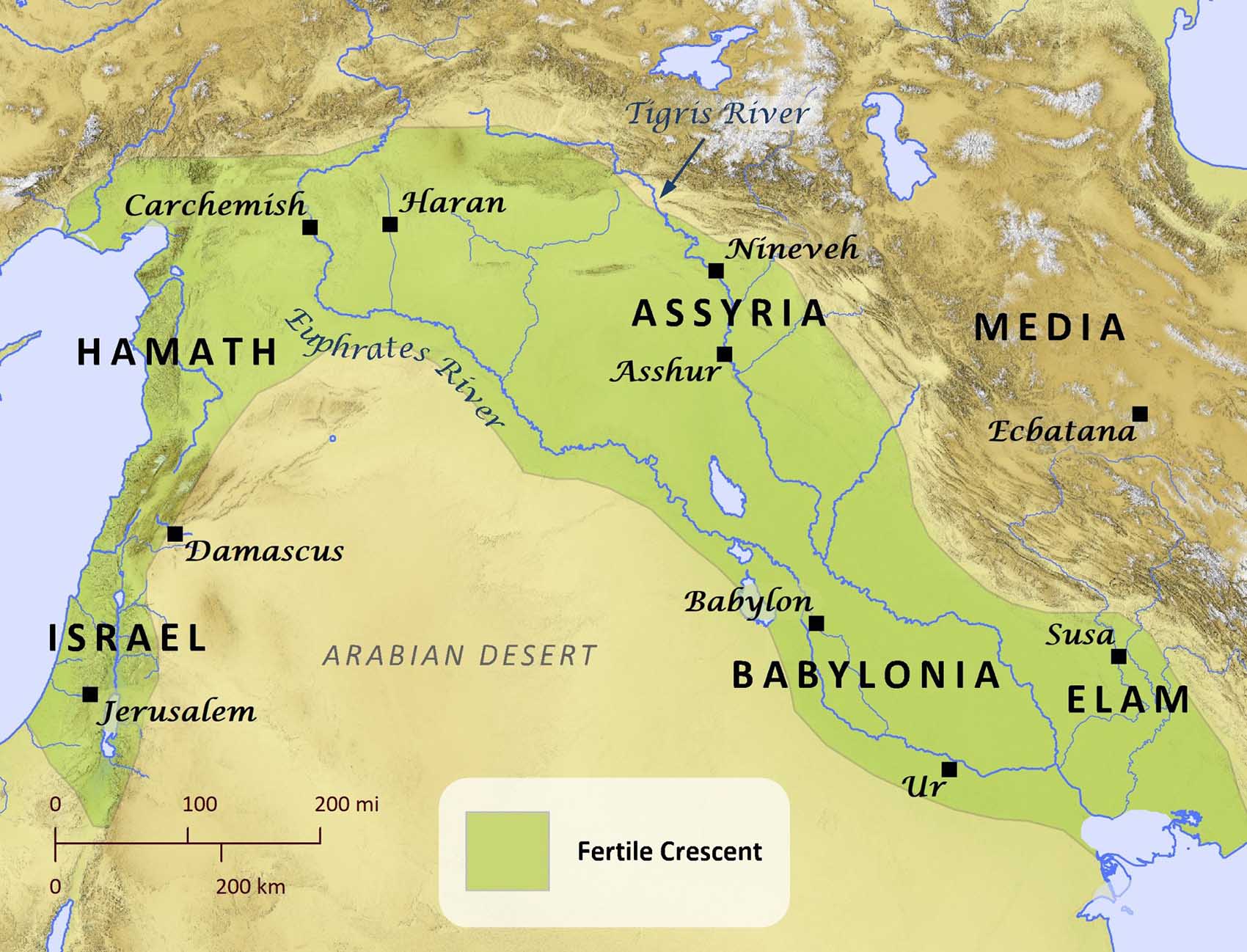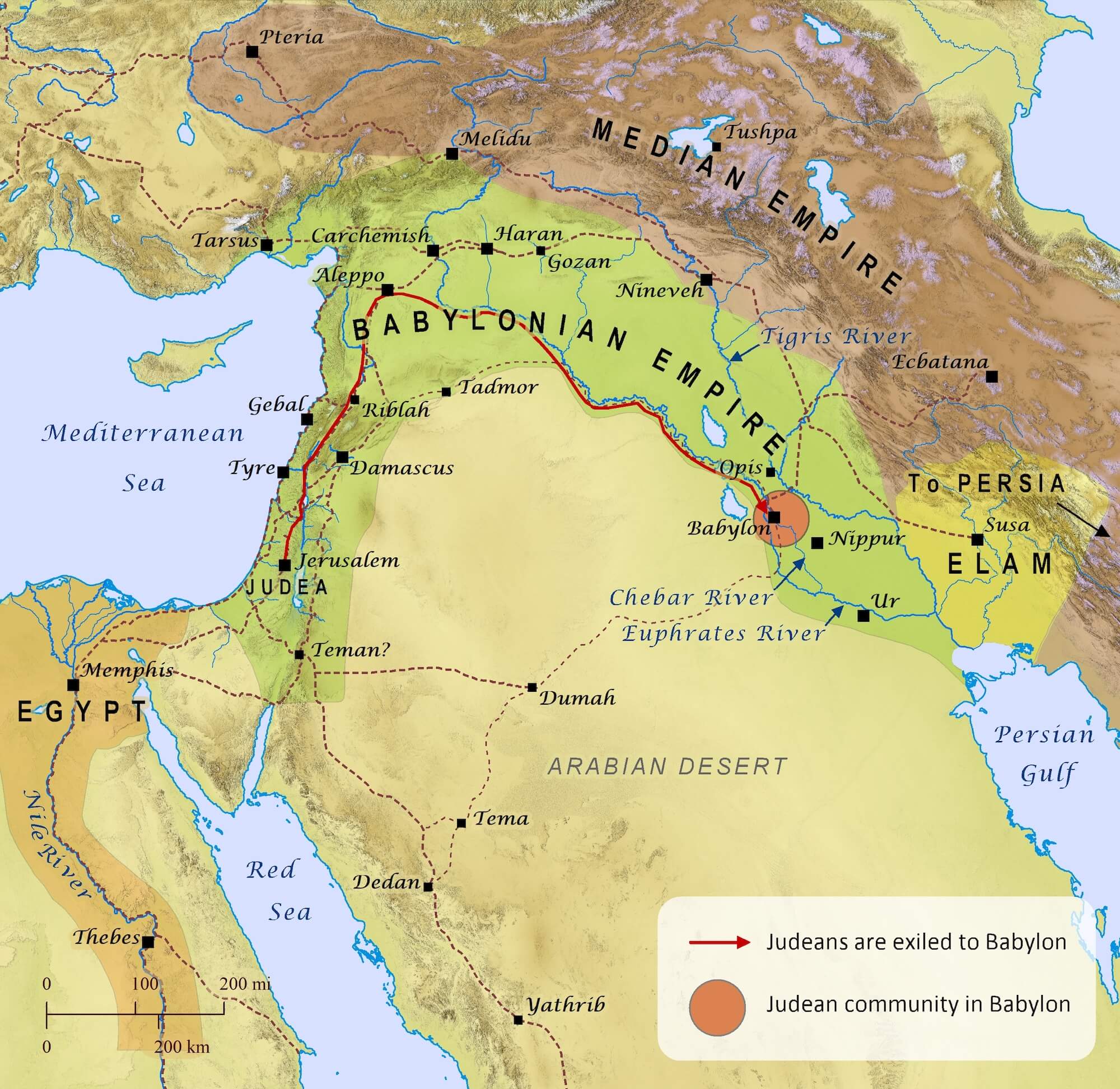To completely conquer Judah, and to bring additional leadership to his court, Nebuchadnezzar took the best and the brightest of the Jewish people and forced them to learn Babylonian customs and to work for the Babylonian empire.
Ashpenaz, the chief of [Nebuchadnezzar’s] officials, is referred throughout Daniel as the “chief official” or “the official.” The Hebrew word is from a root word that means to castrate, so likely Ashpenaz was the chief of the eunuchs. During this era, it was typical for the king’s court and administration to be populated with eunuchs in order to guard against mutiny. That would infer that Daniel was not only uprooted from his home and exiled to Babylon, but also castrated. Ashpenaz was ordered by the king to choose the best and brightest of the people of Judah and train them in the literature and language of the Babylonians, and train them such that they were worthy of serving the king.
It is likely Nebuchadnezzar did this to more rapidly change the culture of Judah to adhere to the culture of Babylonians. Culture is shaped by a consensus on what is honored and dishonored. Who are characterized as heroes in literature and stories and what characteristics are admired is a large part of shaping culture. Language also shapes culture. So it is likely this is an attempt to assimilate talent to serve the empire.
The Jewish people chosen in this elite group were mandated to eat the same food as the King, to be educated in the same way as the Babylonians, and were given new, Babylonian names. The changing of the names is significant. Not only did it strip them of their Jewish names, of which God was the center of, it replaced them with names that worshiped the Babylonian gods or the king.
Daniel means “God is my judge,” whereas his new name “Belteshazzar” meant “Lady, protect the king.” Hananiah’s (one of the other jews chosen) name means “Yahweh (i.e. “God”) has been gracious,” but his new name “Shadrach” means “I am fearful of (one of the Babylonian gods).” And on down the line it went to Mishael Meshach and to Azariah Abed-nego.
But Daniel, a follower of the one true God, rejected this transformation, while becoming proficient in Babylonian culture. It is possible that Daniel was adhering to the instruction given by the prophet Jeremiah in Jeremiah 29:4-10. We know that Daniel read this passage at some point, because he references Jeremiah 29:10 in chapter nine. Jeremiah told the children of Israel:
“Thus says the Lord of hosts, the God of Israel, to all the exiles whom I have sent into exile from Jerusalem to Babylon, ‘Build houses and live in them; and plant gardens and eat their produce. Take wives and become the fathers of sons and daughters, and take wives for your sons and give your daughters to husbands, that they may bear sons and daughters; and multiply there and do not decrease. Seek the welfare of the city where I have sent you into exile, and pray to the Lord on its behalf; for in its welfare you will have welfare.’”
(Jeremiah 29:4-7)
It would be consistent with this command for Daniel to seek to become proficient in his assigned task serving Babylon, while maintaining his integrity as a worshipper of the Lord God.
Biblical Text:
3 Then the king ordered Ashpenaz, the chief of his officials, to bring in some of the sons of Israel, including some of the royal family and of the nobles, 4 youths in whom was no defect, who were good-looking, showing intelligence in every branch of wisdom, endowed with understanding and discerning knowledge, and who had ability for serving in the king’s court; and he ordered him to teach them the literature and language of the Chaldeans. 5 The king appointed for them a daily ration from the king’s choice food and from the wine which he drank, and appointed that they should be educated three years, at the end of which they were to enter the king’s personal service. 6 Now among them from the sons of Judah were Daniel, Hananiah, Mishael and Azariah. 7 Then the commander of the officials assigned new names to them; and to Daniel he assigned the name Belteshazzar, to Hananiah Shadrach, to Mishael Meshach and to Azariah Abed-nego.
Check out our other commentaries:
-
Numbers 6:21 meaning
Summary of the Nazirite Vow...... -
Psalm 51:7-9 meaning
After searching his heart in the presence of God, David realizes the hopeless condition of his sinful heart and he cries out to God. He...... -
Nahum 1:1 meaning
The prophet Nahum receives a revelation from God concerning Nineveh....... -
Acts 2:14-18 meaning
Peter begins a sermon to explain to the Jewish pilgrims why they are speaking in foreign languages. The Spirit of God has been poured out...... -
Romans 9:22-23 meaning
God is willing to retrofit those who choose to reject Him as vessels of destruction, just as He did when Pharaoh continued to reject Him.......




